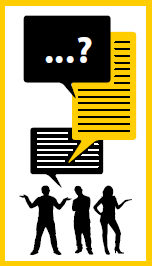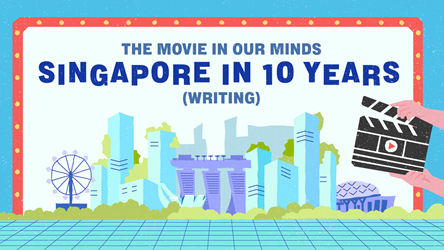Engaging the Public – Overrated or Necessary
Winning Entry - Liew Wen Hwee, NEA

Yes, it is of utmost importance to understand the perspectives and concerns of the very people whom we are making policies and services for. We could establish rapport with the public, discuss issues through the engagement process. This would allow both the public and Public Service to better understand the micro and macro situations from various perspectives. If the public is engaged during policy and service design, we could develop more holistic and timely policies while securing buy-in at the same time. Singapore is the joint responsibility of all Singaporeans, not just the Public Service. Therefore, everyone should contribute positive and helpful suggestions to building our home. Having said these, the process of policies and services design might be more tedious and a longer time required.
Congratulations Wen Hwee! Thank you for sharing your heartfelt views with us. We’ve got a festive hamper worth $100 that’s on the way to you!
Engaging the public is at the heart of the Public Service. Remove this function and the entire spirit of the Public Service crumbles. The interaction and proximity with the public (whilst not always smooth-sailing) makes your work real and gives it true social value. We should move away from asking questions like “should we listen/engage?” to “how should we listen/engage?”
Dawn Lum, IPOS
It may not be necessary to have public consultation for all types of policies. Perhaps we should define what should go for public consultation. However, a faster and effective way is really for a public servant to empathise and think like a citizen or user when developing a policy or service. We could gather feedback from our staff first as they represent the public as well.
Chong Lai Fun, ACRA
Treating public consultation as an SOP won’t work. Who would understand consultation papers written in government language posted on websites? If we treat this seriously, we would get down to the target audience’s level and devise engagement exercises they can relate to.
Cynthia Lee Poh Lian, MCYS
Honestly, I feel it isn’t necessary to involve public in getting feedback on policies. As the management would have already done some collation of statistics before implementing the policies, it will be a further waste of precious time and resources in getting public responses. Getting public response doesn’t necessarily equate to more effective policies.
June Zhou, CPFB

The end result defines the action that has to be taken and the amount of effort placed to improve or introduce a policy. Is the policy for the public? Then it makes sense that the public be involved. Ultimately it’s the people affected by the policy who are always in the best position to give the unseen perspective. To develop an effective policy, the dollars need to be spent in the form of time and resources. There are no short cuts to any good policy, failing which, it becomes a futile exercise.
V. Alagesan, Legal Aid Bureau
Next, on Your Say...
The Bucket List
If you were to live 2012 like your last year, what would be the TOP FIVE things you'd do? Tell us what you think!
Tell us at:
psd_challenge@psd.gov.sg
The best entry will win an attractive prize worth up to $100! All other published entries will win shopping vouchers worth $30 each. Please include your name, agency email address, agency and contact number. All entries should reach us by January 27, 2011.
- POSTED ON
Jan 5, 2012









_thumbnail.tmb-tmb450x250.jpg)